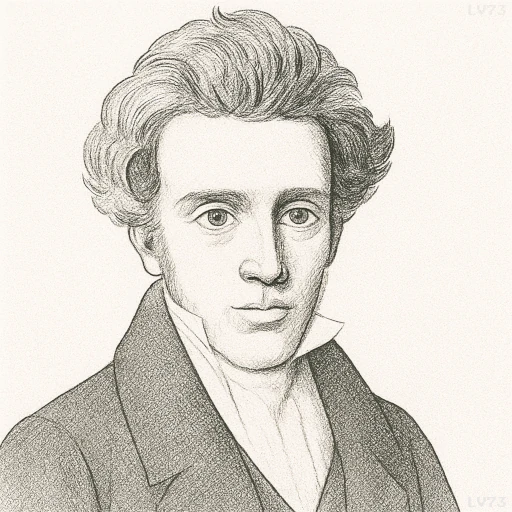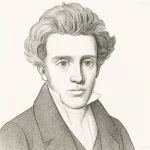“What is a poet? An unhappy person who conceals profound anguish in his heart but whose lips are so formed that as sighs and cries pass over them they sound like beautiful music.”

- May 5, 1813 – November 11, 1855
- Danish
- Philosopher, Theologian, Poet, Father of Existentialism
table of contents
Quote
“What is a poet? An unhappy person who conceals profound anguish in his heart but whose lips are so formed that as sighs and cries pass over them they sound like beautiful music.”
Explanation
This quote defines the poet as a figure of paradox and pathos—one who suffers deeply but transforms that suffering into beauty. Kierkegaard presents the poet as a vessel of anguish, someone who experiences sorrow not less intensely but perhaps more deeply than others. Yet rather than expressing pain in raw form, the poet is gifted (or cursed) with the ability to translate pain into art, creating beauty that moves others even as it conceals the personal torment within.
This idea reflects Kierkegaard’s broader existential theme that authentic expression often emerges from suffering. He himself was no stranger to this dynamic, having lived with personal sorrow and spiritual struggle that shaped his work. The poet becomes, in this view, a tragic figure—admired and even celebrated, yet fundamentally misunderstood. The audience hears music where there is weeping, taking pleasure in what, for the poet, is a form of emotional survival or expression of unbearable truth.
In contemporary terms, the quote resonates with how we often consume art, literature, or music: drawn to its beauty, but rarely mindful of the inner battles that gave rise to it. Many great artists have turned despair into timeless work, and Kierkegaard reminds us that behind their artistry may lie a heart burdened with sorrow. The poet does not merely entertain—they sublimate anguish, offering the world beauty at the cost of private pain.
Would you like to share your impressions or related stories about this quote in the comments section?




